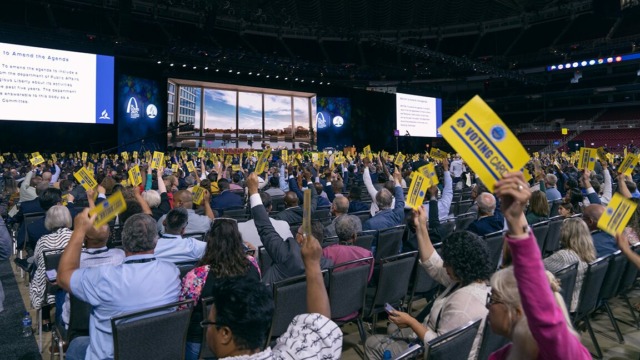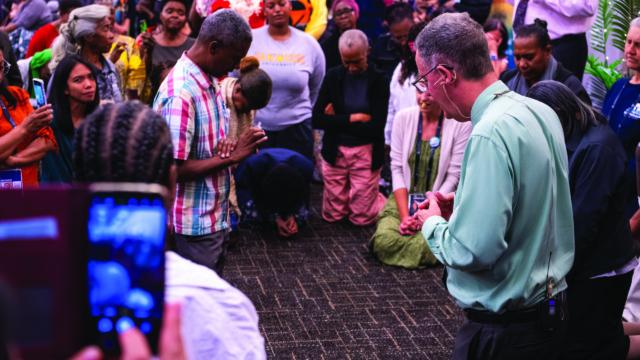By Doug Inglish — You’ve all heard the phrase “save the best for last.” I suspect it has its roots in describing a meal, in which desert typically comes at the end, but whatever situation brought it into usage, it has since acquired other applications.
A competing phrase, also in general use, encourages us to “put your best foot forward.” I have no idea where that may have originated, but the idea is also widely understood.
Used car dealers put their best models out front, with the high mileage cars on the back row. Realtors post pictures of the recently remodeled kitchen and hope buyers don’t notice the proximity to the railroad tracks. There is even a biblical example of this when the ruler of the feast where Jesus turned water into wine noted how most people serve the best at the beginning and save the cheap stuff for later (see John 2).
Isaiah has an interesting illustration about a man who uses the wood from a tree that he chops down:
Half of the wood he burns in the fire;
over it, he prepares his meal,
he roasts his meat, and eats his fill.
He also warms himself and says,
“Ah! I am warm; I see the fire.”
From the rest, he makes a god, his idol;
he bows down to it and worships.
He prays to it and says,
“Save me! You are my god!”
— Isaiah 44:16-17, NIV
The purpose of the illustration is to show the absurdity of idolatry. How can half of the tree be fuel and the other half a deity? Point taken, but that’s not the point I want to make here. Instead, I wish to draw your attention to the order in which the wood is used: the first part is for himself, and the last part is for his god.
I would like to suggest that this order for the use of resources is pagan. If I make sure that I get my needs met before I consider how much I can spare from the leftovers for my God, I’m not rising too far above the idolater in the illustration, even if I am not bowing down to chunks of wood. Maybe I’m not actively engaged in the worship of a false god, but I can’t make the argument that taking a Me First attitude about my resources is illustrative of true worship.
True worship doesn’t save the best (God) for last. God asks for the first fruits (Proverbs 3:9-10), not the leftovers. The only way to honor that request is to put our best foot forward, giving Him what He claims from the beginnings of our resources and doing so with a heart full of gratitude and respect.
If we put things in that order, what’s left for us will be no problem (see Leviticus 26).
–Doug Inglish, RMC vice president of administration and stewardship director; photo by iStock




